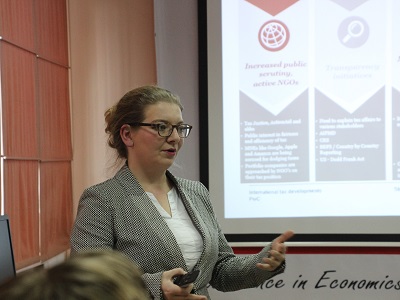- Details
In Q3 2017, the volume of remittances in Georgia grew by one fifth compared to last year’s level (+19.7%), reaching 367 million USD. The recovery of remittances is a clear sign that the economy of the region continues to improve. All primary source countries of money inflows to Georgia showed a positive annual change: Russia (+13.3% YoY), the United States (+9.1% YoY), Italy (+23.8% YoY), Greece (+9.5% YoY), and Israel (+102.2% YoY).
The growth of money inflows from Russia reflected the dynamics of oil prices on the world market, which positively affected economic growth and therefore the ruble exchange rate against the US dollar. Remittances from Israel have continued to show unprecedented growth, which stems from the wave of Georgian emigration that started in 2014, when the countries ratified a visa-free regime. Following this, many Georgians stayed in Israel illegally or sought asylum there after finding it to be an outstanding country in which to work and send money back to their homeland. Taken together, these two countries contributed 11.2 percentage points to the total YoY growth of remittance transfers in Q3 2017.
- Details
On October 20, members of the ISET community attended a guest lecture on international taxation from Ms. Femke van der Zeijden from PricewaterhouseCoopers Netherlands’ office. Ms. Zeijdenhas introduced issues of international taxation from legal perspective. This was particularly useful and interesting for the audience as it primarily consisted of economists, for whom the legal aspects and problems of different taxation policies are not well known.
Ms. Zeijden tailored her lecture to show the challenges in international taxation coming from development of information technologies. Specifically, the lecture touched upon the following four important directions which present the most significant challenges: (i) Globalization, (ii) Digitalization, (iii) Transparency and (iv) Multinational corporations.












